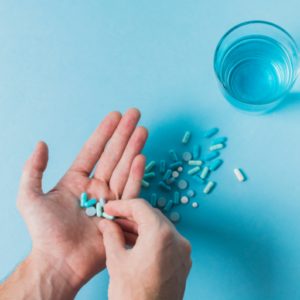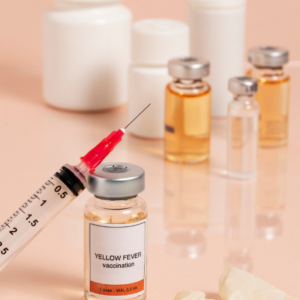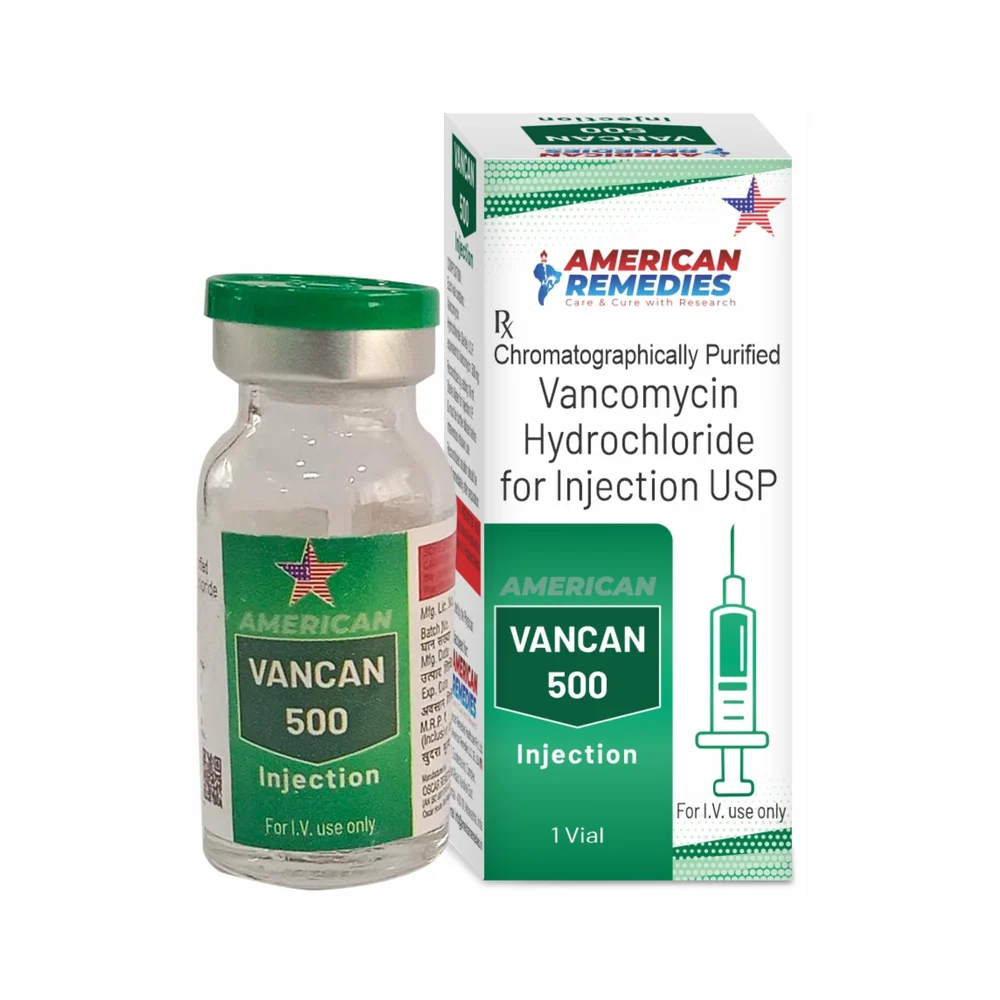VANCAN 500mg
| Package | Per injection | Savings | Price |
|---|---|---|---|
| 10 injections | $3.60 | $12 | $48 $36 |
| 8 injections | $3.88 | $9 | $40 $31 |
| 6 injections | $4.17 | $7 | $32 $25 |
| 4 injections | $5.00 | $4 | $24 $20 |
| 2 injections | $7.00 | $2 | $16 $14 |
| 1 injection | $8.00 | – | $8 |
What is this medicine?
VANCAN (Vancomycin) is a glycopeptide antibiotic. This medicine is used to treat serious bacterial infections, especially those caused by Gram-positive bacteria, such as methicillin-resistant Staphylococcus aureus (MRSA). It is used to treat infections of the skin, blood, bones, joints, lungs (pneumonia), and heart (endocarditis) when other antibiotics are not effective.
What should I tell my health care provider before I take this medicine?
They need to know if you have any of these conditions:
-
hearing problems or history of hearing loss
-
kidney disease
-
inflammatory bowel disease (if using for oral Vancomycin)
-
dehydration
-
a recent or current use of other nephrotoxic or ototoxic drugs
-
an unusual or allergic reaction to vancomycin or other antibiotics
-
pregnant or trying to get pregnant
-
breast-feeding
How should I use this medicine?
This medicine is usually given by intravenous (IV) infusion in a hospital or clinical setting by a healthcare professional. The dose and duration of therapy depend on your condition and response to treatment. It must be administered slowly to prevent infusion-related reactions (e.g., Red Man Syndrome).
Overdosage: If you think you have received too much of this medicine, contact your doctor, poison control center, or emergency room at once.
What if I miss a dose?
If you are receiving this medicine in a medical facility, it is unlikely you will miss a dose. If you are using it at home and miss a dose, contact your doctor or pharmacist immediately for instructions.
What may interact with this medicine?
-
aminoglycoside antibiotics (e.g., gentamicin, amikacin)
-
amphotericin B
-
loop diuretics (e.g., furosemide)
-
cyclosporine
-
cisplatin
-
muscle relaxants used during surgery
-
other nephrotoxic or ototoxic drugs
This list may not describe all possible interactions. Give your health care provider a list of all the medicines, herbs, non-prescription drugs, or dietary supplements you use. Also tell them if you smoke, drink alcohol, or use illegal drugs. Some items may interact with your medicine.
What should I watch for while using this medicine?
-
Your kidney function and hearing will be monitored regularly during treatment.
-
Notify your doctor immediately if you develop ringing in the ears, hearing loss, or reduced urine output.
-
Inform your doctor if symptoms do not improve or worsen during treatment.
-
Report any rash, fever, or chills during or after infusion. These may be signs of an infusion reaction or hypersensitivity.
-
Do not use other medicines that can harm the kidneys or ears unless prescribed and monitored closely by your doctor.
What side effects may I notice from this medicine?
Side effects that you should report to your doctor or health care professional as soon as possible:
-
allergic reactions like rash, itching or hives, swelling of the face, lips, or tongue
-
hearing loss or ringing in the ears (tinnitus)
-
decreased urine output or signs of kidney damage
-
severe diarrhea (may indicate C. difficile infection)
-
chest pain or difficulty breathing
-
flushing, redness, or rash on the upper body and face during infusion (Red Man Syndrome)
-
fever, chills, or joint pain
Side effects that usually do not require medical attention (report if they continue or are bothersome):
-
nausea
-
mild diarrhea
-
pain or irritation at the injection site
-
headache
This list may not describe all possible side effects.
Where should I keep my medicine?
If you are storing it at home (for home infusion):
-
Keep out of the reach of children.
-
Store the dry powder vials at controlled room temperature between 20°C and 25°C (68°F and 77°F).
-
Protect from light and moisture.
-
Once reconstituted, the solution should be used within the time specified by your pharmacist or healthcare provider, typically within 24 to 48 hours if refrigerated.
-
Do not freeze.
-
Discard any unused medicine after the expiration date or as instructed.
























